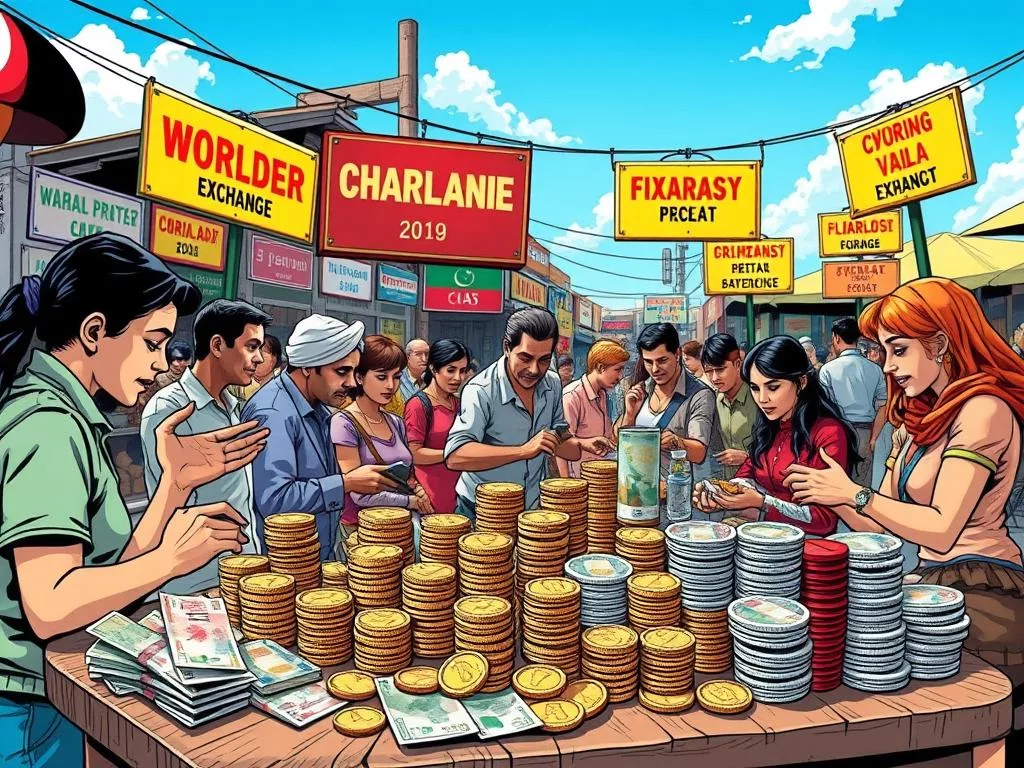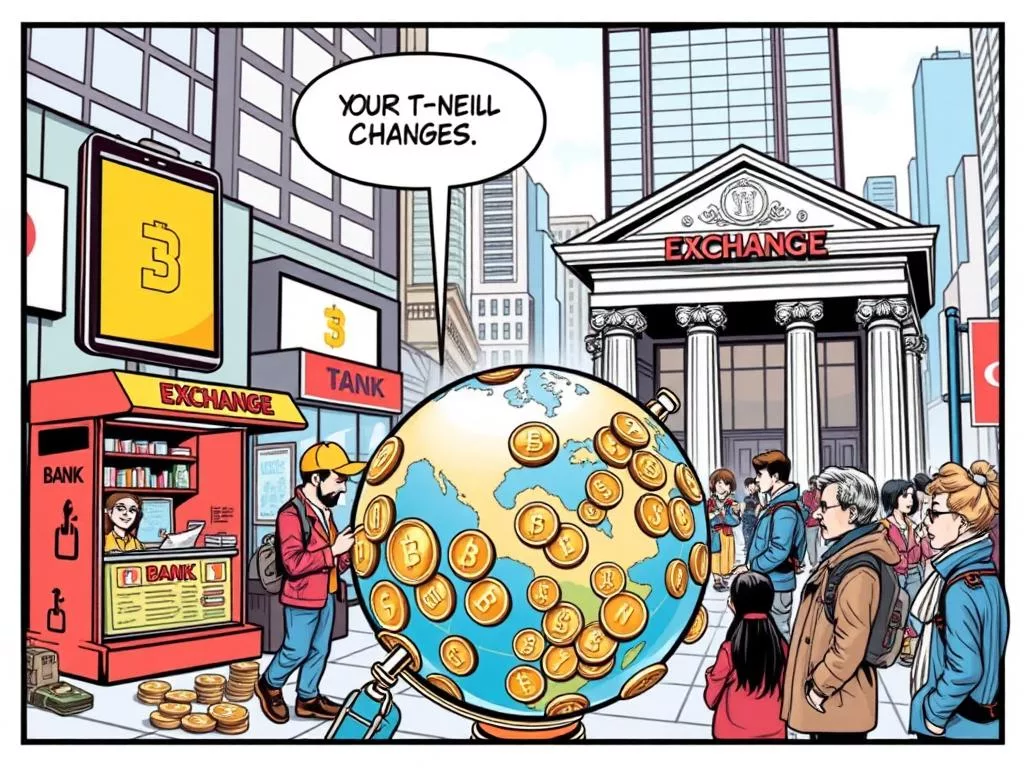Traveling or making international purchases requires knowing about currency exchange. Different rates and fees can greatly affect your spending. This currency exchange tips guide shows you how to save money. It helps you get the best exchange rates, making your money go further.
Whether you’re going abroad or handling international transactions, knowing your options is key. We’ll dive into the world of currency exchange. You’ll learn how to use your funds wisely.
Understanding Currency Exchange Basics
Currency exchange basics are important for everyone to know before making transactions. The exchange rate shows how much one currency is worth compared to another. For example, if 1 USD is worth 0.85 EUR, changes in rates are due to demand, inflation, and interest rates.
It’s key to watch these factors closely for smart exchanges.
The spread is the difference between buying and selling currency rates. Knowing the spread helps figure out the profit or loss from an exchange. A small spread means better rates, while a big spread might mean worse terms.

Market factors greatly affect exchange rates. Things like economic stability, interest rates, and world events are important. For example, using credit or debit cards abroad can cost 1% to 3% in fees.
Knowing these fees is important for planning exchanges. Currency exchange kiosks usually have lower rates but higher fees than banks and ATMs. This can lead to expensive mistakes.
Also, avoiding dynamic currency conversion (DCC) helps avoid bad rates and hidden charges. Prepaid travel cards are a good way to manage money without these fees. Credit cards without foreign transaction fees can offer good rates and rewards for overseas purchases.
Learning these basics helps make better choices at home or abroad. It improves financial experiences with different currencies.
Guide to what is the cheapest way to exchange money
Looking for the cheapest way to exchange money can save you a lot when traveling or doing international deals. There are many options, each with different fees and ease of use.
Banks and Credit Unions usually offer good rates for exchanging money. For example, Bank of America charges $7.50 for orders under $1,000. Citibank gives free exchange for premium account holders but charges $5 for others under $1,000. PNC Bank doesn’t charge fees for branch delivery. Ordering currency early can get you better rates and avoid extra fees.
Online Currency Exchange Services, like Wise and Currency Exchange International, often have better rates and lower fees. Wise is known for using mid-market exchange rates, with fees as low as 0.41%. Online services usually don’t have hidden fees, helping you save more.
ATMs abroad can also be a good choice for exchanging money. They often give rates close to the interbank price. It’s best to use ATMs from big banks to avoid high fees. Many allow you to withdraw local currency, which can save you money.
Steering clear of expensive places like airport kiosks is key. Rates at airports can be up to 14% higher than IMF rates, costing you a lot. Planning your currency needs ahead of time helps you find cheaper options.
This guide helps you find the best ways to exchange money, showing the benefits of different options. Use mobile apps and online platforms to find the best rates and read reviews.

Strategies to Save Money on Currency Conversion
Traveling abroad means you need to manage your money wisely. One key currency management tip is to check exchange rates before you go. This way, you can avoid high fees found in tourist spots and get the best deal.
Also, be careful with Dynamic Currency Conversion (DCC) when shopping abroad. Paying in local currency instead of USD can save you money. Plus, using multicurrency accounts from fintech companies can make exchanging currencies cheaper and easier.
For those who travel often, prepaid currency cards are a smart choice. They help avoid foreign transaction fees and offer better rates. Planning your cash withdrawals can also save you money by reducing ATM fees. For more tips on saving on exchange fees, think about where and how you exchange your money. This can help you keep more of your hard-earned cash while traveling.

